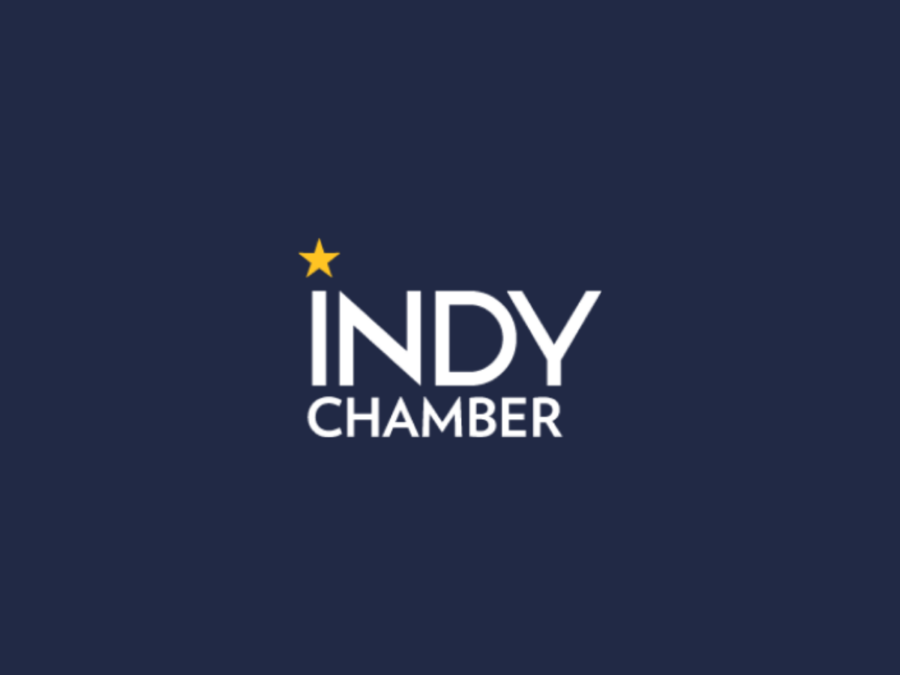By flunking HB1134 out of the Senate, Indiana’s General Assembly bucked a trend of state legislatures rushing to (over)react to misinformed controversies over “Critical Race Theory” lurking in local schools. At least sixteen states have enacted laws aimed at curtailing classroom discussions about race, and CNN featured Indiana as an example of broad-based advocacy turning the tide. Check out the report: “How a diverse coalition in a red state shut down anti-CRT legislation.”
It was a good way to start the week, and notable because of the national dynamics involved in the CRT debate. But working in diverse and sometimes-unorthodox coalitions isn’t exactly a secret formula here at the Indy Chamber. As we’ve broadened our definition of economic development and emphasized priorities like talent and inclusive growth, we’ve routinely formed partnerships with like-minded organizations and constituencies beyond the business community.
Transit is the most obvious example, bringing together major employers focused on workforce accessibility, a spectrum of industry sectors from real estate to hospitality, neighborhood leaders eager for new development and much-needed infrastructure upgrades, representatives of seniors, lower-income families and other groups too often marginalized by lack of mobility options…the list goes on and on. The Transit Drives Indy network has been a durable and dynamic force protecting and advancing Indy’s progress on public transportation for a decade.
The push against RFRA in 2015 is perhaps a more relevant scenario, combining an organized lobbying effort with spontaneous grassroots energy against a particularly objectionable law. But this time around, the case against HB1134 was made early and often enough to preempt passage.
Proving our point:
Not to belabor the issue, but beating the odds on HB1134 reinforced our reasons for opposing the bill in the first place. The diversity of our coalition was one of its strengths, as advocates spoke openly from their own experiences as well as making well-researched, data-driven arguments for the importance of DEI programs in educational engagement and achievement. Collaboration, commitment and tenacity through hours of hearings and legislative outreach made a difference.
These are the same values that reflect a winning workplace culture, lessons that are essential in a diverse, ever-changing economy. Teaching kids that it’s okay to opt-out of uncomfortable ideas or ignore differing perspectives doesn’t prepare them to compete, innovate and succeed in tomorrow’s workforce.
A final thought—parents, teachers, employers and activists have rallied against anti-DEI bills across the country, but have found elected officials unwilling to listen (or seeing more political upside in ignoring the facts). Which brings us to our next point…
We mean business at the ballot box:
Wins for our agenda at the statehouse rely on constructive dialogue with legislators and other decision-makers. These relationships begin—and sometimes end—on Election Day. This week also marked the start of early voting for the May 3rd primary, and we urge you to confirm your registration and make a plan to make your voice heard in the process.
This off-year primary doesn’t have the high-profile panache of an election cycle with contested presidential and gubernatorial campaigns. But we’re seeing a number of primary battles in newly-drawn legislative districts that put experienced incumbents against more ideological challengers.
We can’t name any lawmakers who support our position on every single issue. But we value those who are willing to listen, work with us in the spirit of compromise and craft policies focused on solving problems, not serving partisanship. An unexpected primary upset this spring could cost us a key vote on economic development, transit, education policy or budget priorities next session.
That’s why our Business Advocacy Committee (BAC) continues to interview candidates, make endorsements in key primaries and plan ahead for the November elections.
The BAC rallies members, raises money and amplifies our message to make a difference. Please consider contributing (if you don’t already!) to help advance the Indy Chamber advocacy agenda and support candidates who will translate this agenda to action. Learn more here.
But involvement starts with your vote. You can research the candidates on your ballot here (click “Who’s on the ballot?”).
Within the Indy Region specifically, the BAC is supporting the campaigns of worthy allies who have been ahead of the curve on key issues through the years—folks like Representative Jerry Torr, our partner on the original mass transit legislation along with economic development and election reform measures. And Representative Blake Johnson, who has carried on the fight to protect local transit as an aggressive champion for Indianapolis (and leader on talent issues).
Two first-term Marion County Senators, Kyle Walker and Fady Qaddoura, have already established themselves as influential voices on economic and budgetary issues important to the Indianapolis region and have earned BAC backing as well. (Senator Qaddoura doesn’t face re-election this year but has distinguished himself for his work this session—just like Senator Mike Crider, an experienced leader on criminal justice issues who won’t be on the ballot until 2024.)
We could go on, but we’ll release a full, formal list of endorsements after the BAC has worked through some additional interviews and deliberations with candidates all across the state.
Other news & notes:
We’ll close with a few more recent developments on policy matters as we wait for the legislature to reconvene in May for technical corrections and potential veto override votes on HB1041 and HB1211.
- It looks like the IEDC is already eyeing practical applications of the new authorities granted to the agency under SB361, acquiring land in northern Boone County for a potential high-tech development positioned strategically along I-65 between Indianapolis and West Lafayette. IEDC leaders say a tech park fashioned similarly to North Carolina’s Research Triangle, would connect the intellectual capital and research capabilities of Purdue and other institutions with the workforce and economic advantages of Indianapolis.
- The site could be a candidate for Innovation Development District (IDD) status to capture incremental tax growth for reinvestment in attracting and accelerating economic opportunities. We’d mention that 16 Tech is already creating an advanced industry ecosystem near the IUPUI campus downtown by leveraging public-private partnerships (and state support for specific initiatives like the Bioscience Research institute)—IDDs create a streamlined process for seizing these unique opportunities in the future.
- The premise that businesses locate and expand along transportation corridors that connect employers, educational institutions and accessible talent should also sound familiar to local transit supporters. Speaking of which, Indianapolis is expected to receive $25 million in federal funding for fleet modernization and maintenance through the bipartisan infrastructure bill, boosting IndyGo’s ability to move faster on system-wide improvements as Purple Line construction shifts into high gear.
- The federal infrastructure bill also supports the expansion of electric vehicle charging stations and related investments as part of its $8 billion allocation to Indiana. As road and highway construction costs soar in tandem with the current bout of inflation, we’ll need all the resources we can muster to continue competitive infrastructure investments (and plan for truly transformative projects like a recessed reconstruction of the I-65/70 Inner Loop).
- Finally, we’re seeing the impact of HB1193, which adjusted the formula for dividing Indiana’s share of the national opioid settlement to send more funding directly to local communities for substance abuse treatment and prevention programs. With the bill set to become law in July, Indianapolis has reentered the state settlement after opting out of the old structure – a move that means $40 million for local efforts to combat opioid misuse and addiction.



